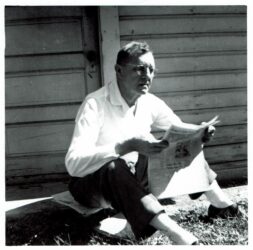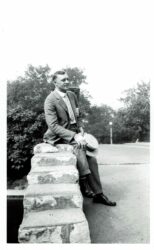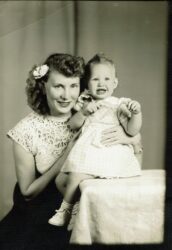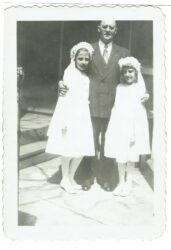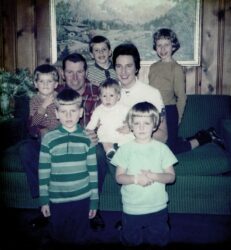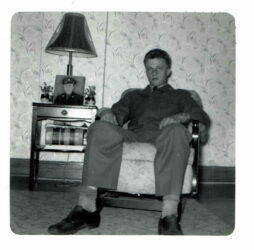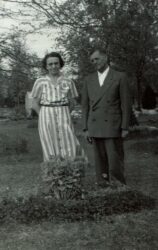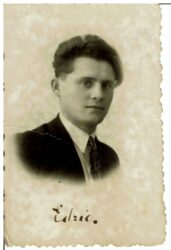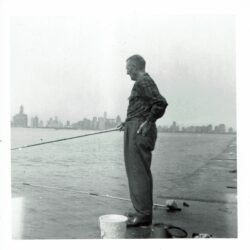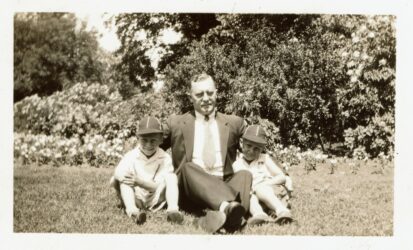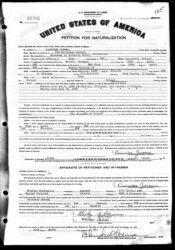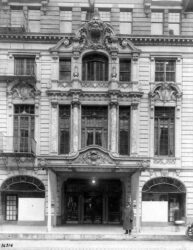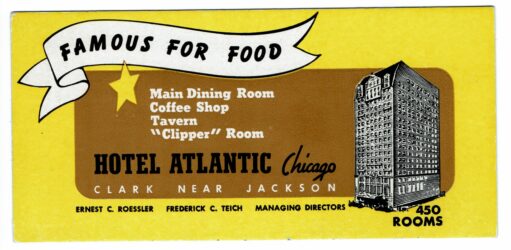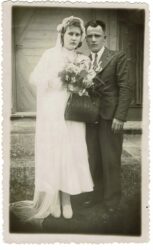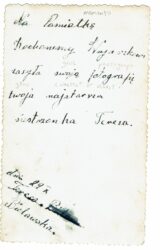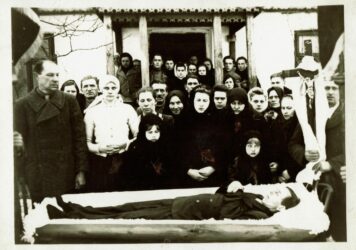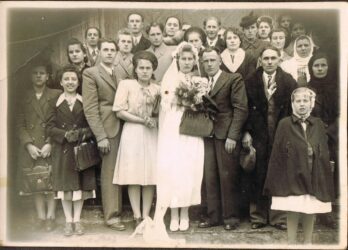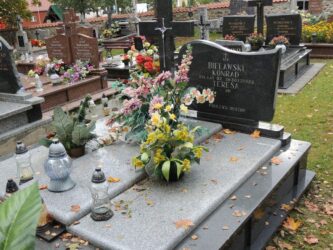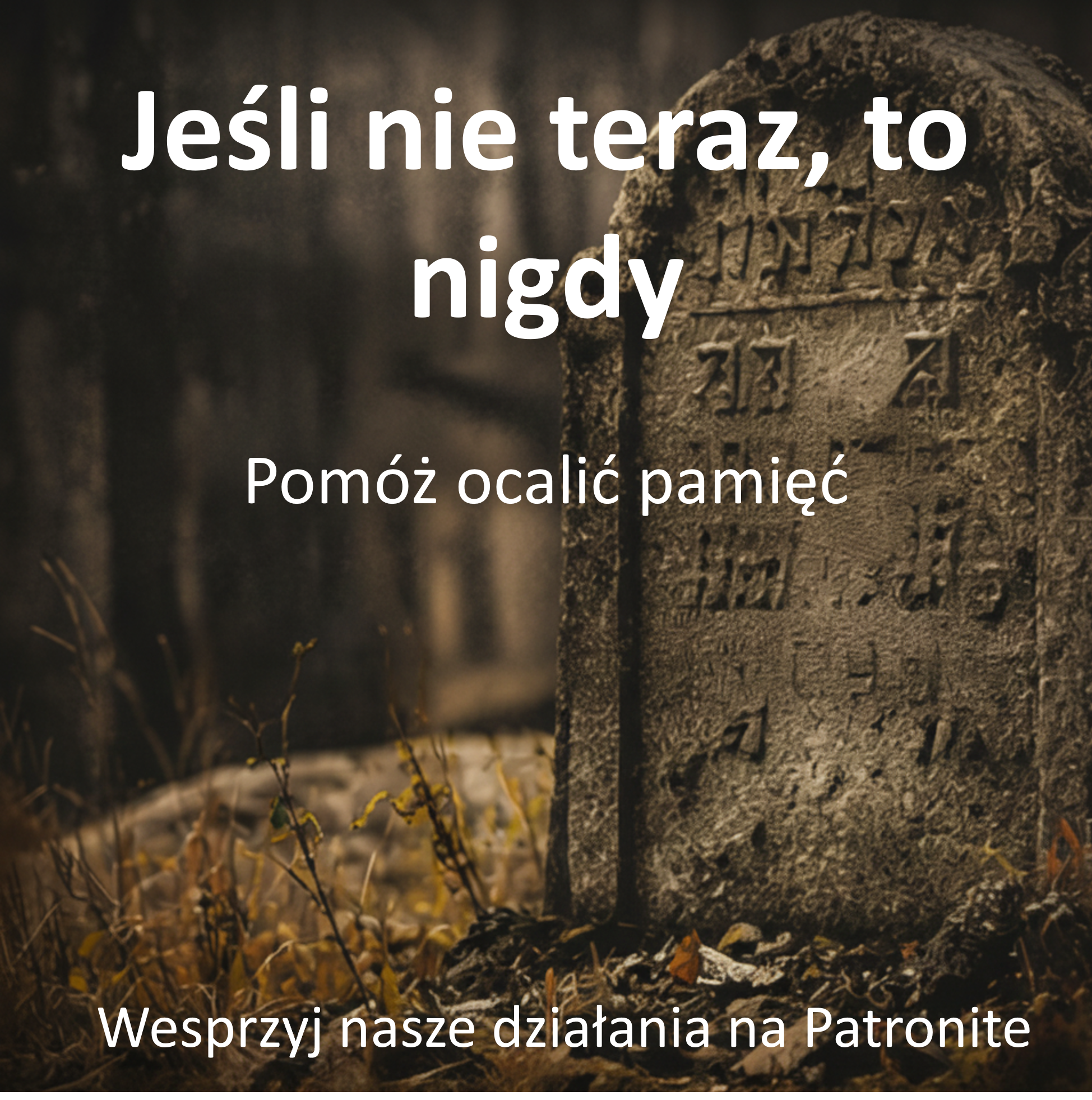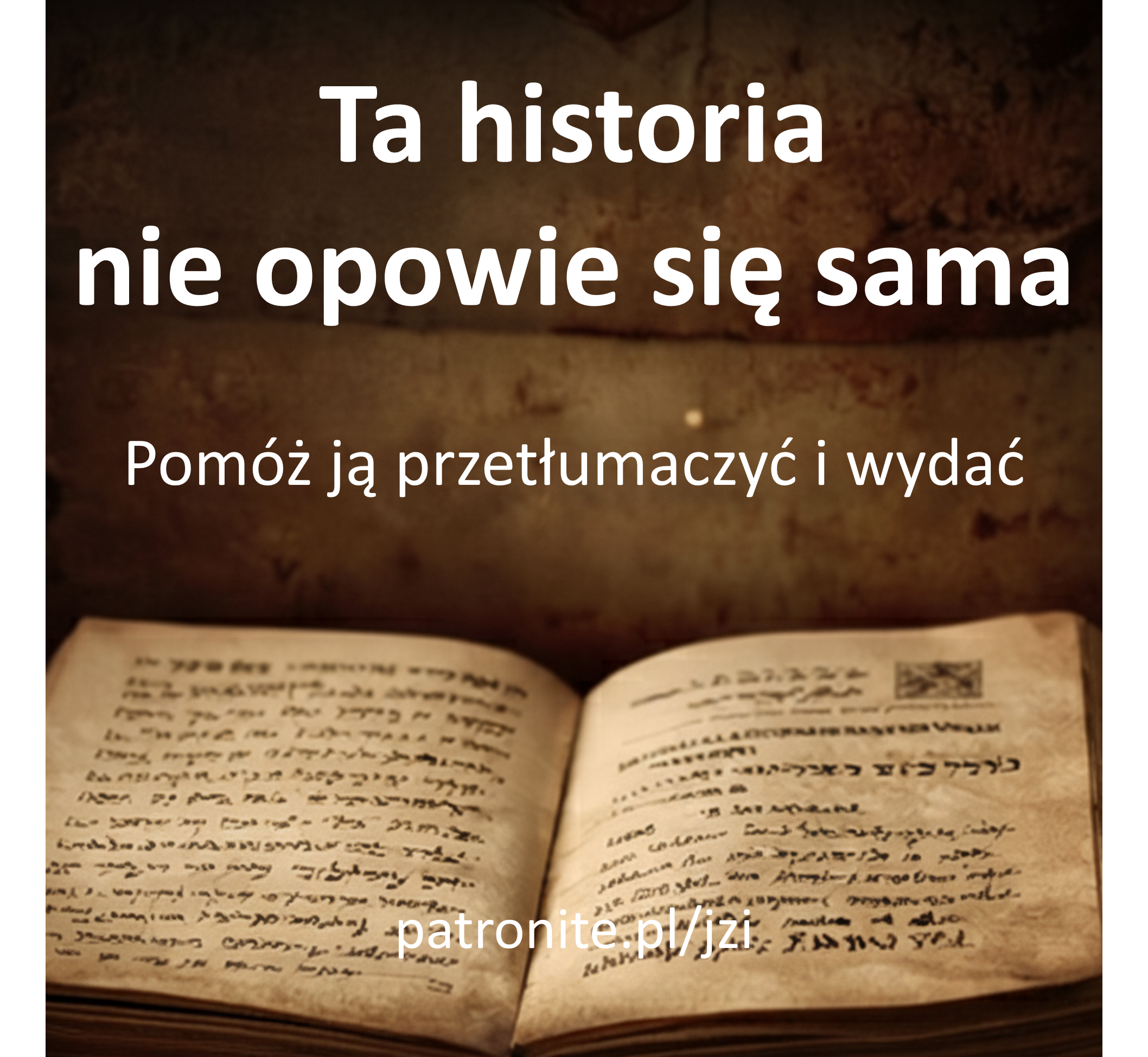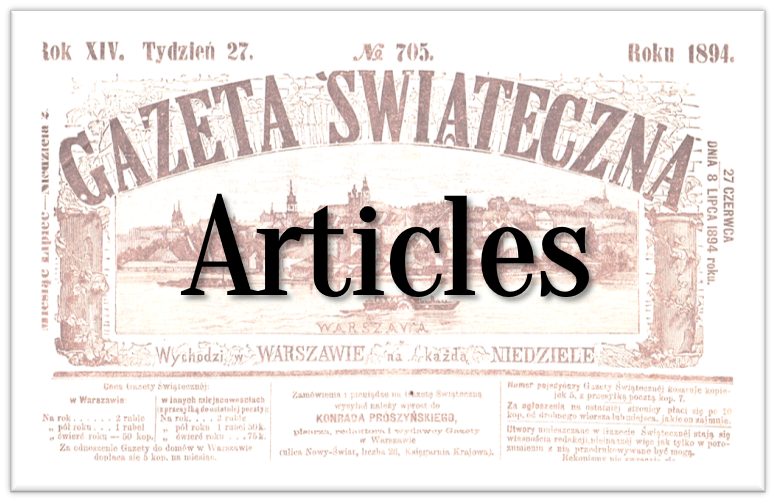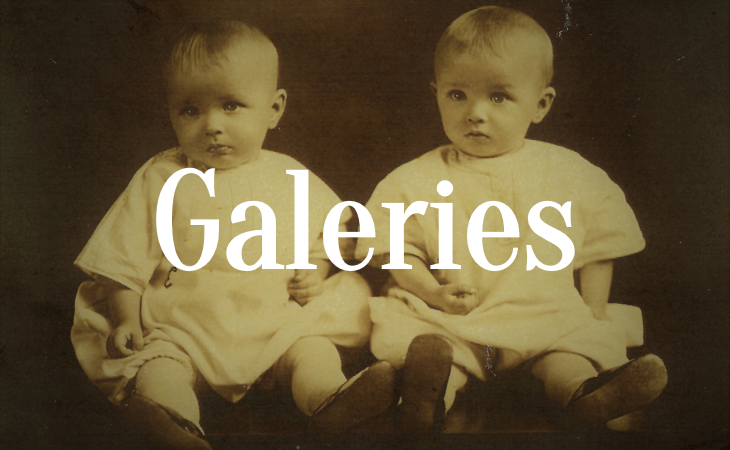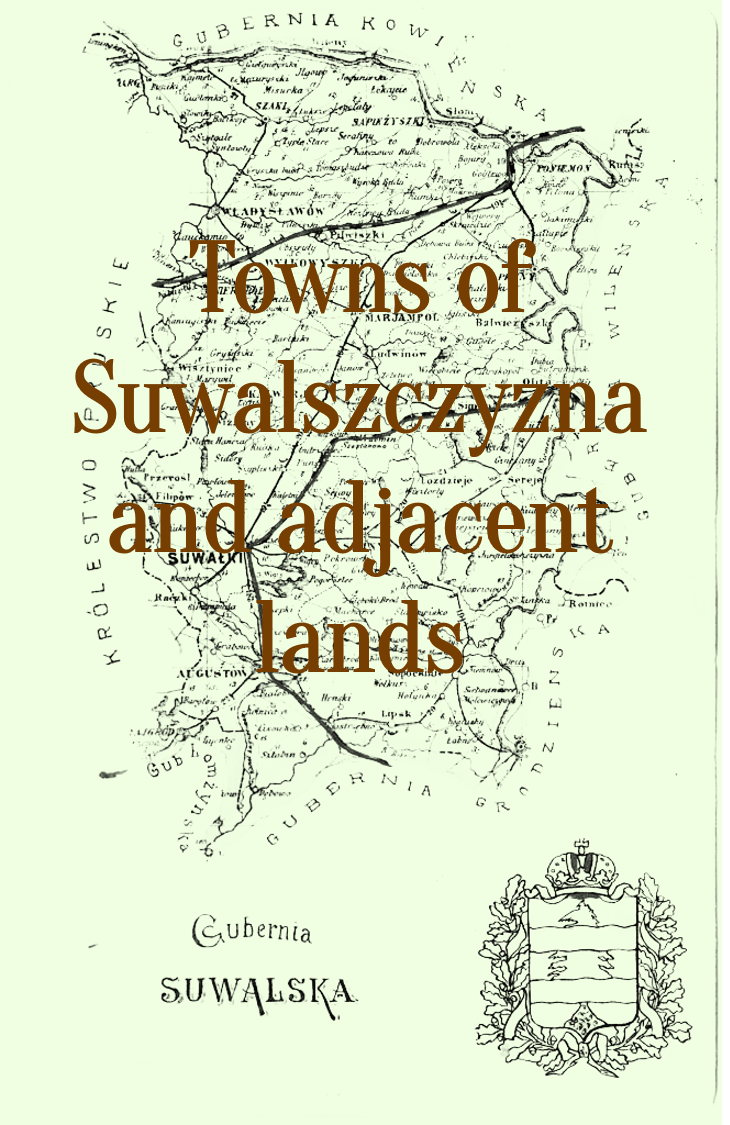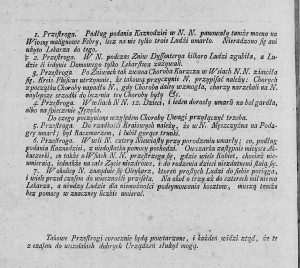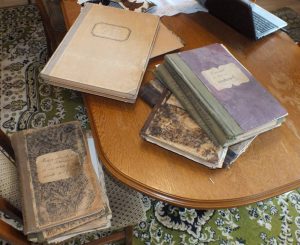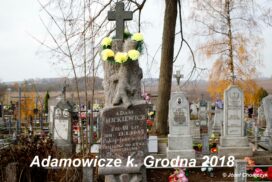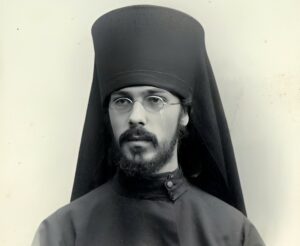Kazimierz Jaroma was born August 8, 1887 in Czarniewo. He was the second child of Jan Jaroma (1859-1928) and Jozefa Tomaszewska (1859-1919). According to what he told his daughter, Mary, he did not like farming and would hide in the barn to avoid working. At the age of 18 he emigrated to the United States of America to get rich in the land where the “streets were paved with gold.” Unfortunately, in an accident operating a metal press, he cut off most of the four fingers on his left hand. His friends in America decided he would have to be sent back to Poland, but Kazimierz ran away from them. He worked his way to Chicago, Illinois, where he would live the rest of his life in one of the largest, busiest cities in the U.S. – a place as different from his home village as could be.
When Kazimierz was 22 years old, he married a woman who was about 20 years old named Anna Sawicka, also from Poland. (It is possible she was from Krasnoborki, but there is no way to verify this.) They had two children, Edward, born 1912, and Stanislawa, born 1914. Unfortunately, the marriage ended and Anna took the children and returned to Poland, sometime before 1917. It is not known where she lived in Poland, but she wrote back to the U.S. at least until 1958. Edward died in Poland during World War II, but Stanislawa returned to the U.S. when she was 16 years old. She eventually married and had one daughter, and died in 2003 at the age of 89.
Kazimierz’s second wife was the daughter of German Polish immigrants, Frances Antkowiak. By the time he started his second family he was almost 40 years old and had become a naturalized citizen of the U.S. His name gradually changed, first to “Casimir Jaroma” and finally “Charles Jerome,” which was easier to spell and pronounce in English! It turned out that the streets were not paved in gold in the U.S., and Charles never made his fortune. But he always had a job and was well liked and respected where he worked. Kazimierz was employed by the luxury Hotel Atlantic in downtown Chicago, working for many years in the position which would be called “concierge” today.
Charles and Frances had four children: Charlie, born 1928, John, born 1930, Mary, born 1933, and Grace, born 1934. Charlie died in an accident in 1941. John and Grace continued to live in Chicago until they died, John at age 82 and Grace at age 75, but neither of them married or had children. Mary eventually married Roy Egan in 1964 and had a happy family of six children.
Po II wojnie światowej, kiedy w Polsce były ciężkie czasy, Karol i jego rodzina posyłali do rodzinnej wsi paczki, mimo że sami nie mieli zbyt wiele. Frances chowała pieniądze w puszce z mieloną kawą (kawa była ważnym produktem do wysłania!), a po zamknięciu pudełka ręcznie obszywała go kawałkiem tkaniny, aby rodzina w Polsce mogła stwierdzić, czy pudełko zostało otwarte.
Mary remembers her father as a man who was liked and respected by those who knew him. When he died suddenly in 1958 she says her family was surprised by the number of people who paid their respects, even wealthy businessmen who knew him from the hotel. Charles was extremely neat and organized (like the Church records from his parish!) He had a good sense of humor and loved to laugh. He loved the excitement and the people of the big city, but one of his favorite activities was quiet and rural--fishing on Lake Michigan. Maybe there was a little bit of the village farmer in him after all.



